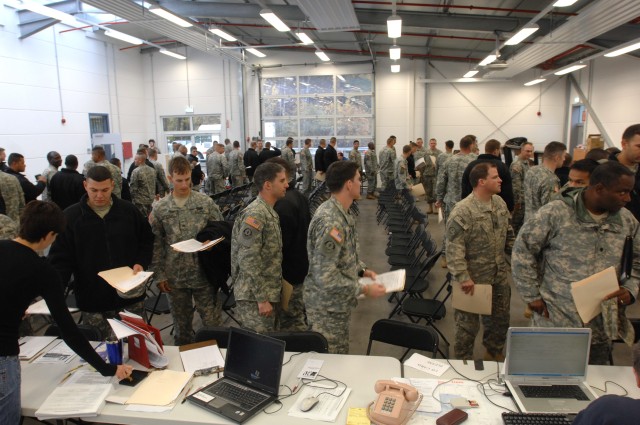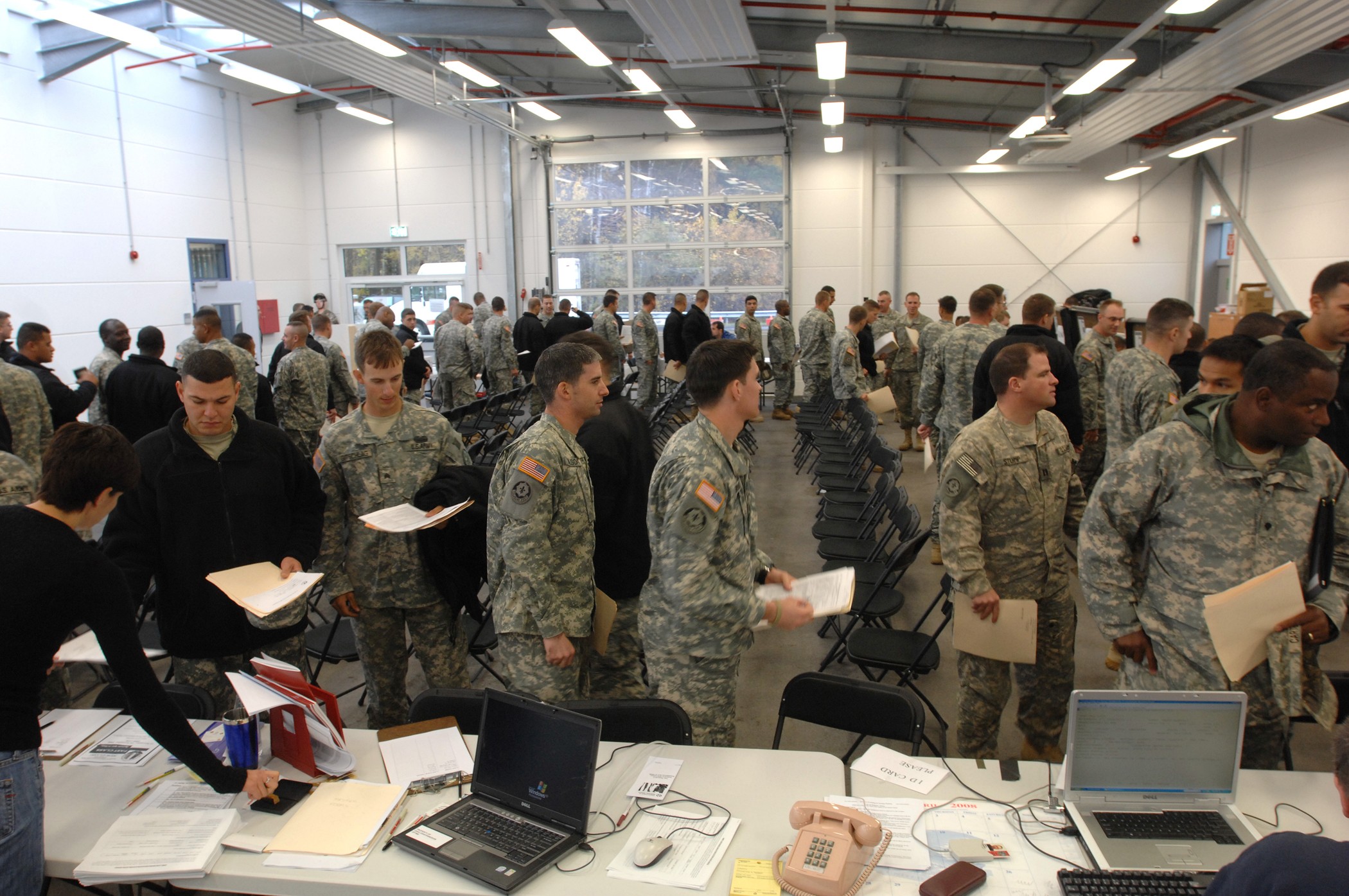
VILSECK, Germany -- Months of preparation go into a unit's deployment, and the same can be said of its deployment back home.
With about 4,000 Soldiers of U.S. Army Europe's 2nd Stryker Cavalry Regiment currently returning here from deployment, the "Dragoons" have been easing back into the community while being saluted at welcome home celebrations and digging into a seven-day reintegration program.
It took four months of planning to put that reintegration program in place for 2nd SCR Soldiers, Vilseck officials said.
The proof of that planning begins when Soldiers step off the plane. From that moment, seven days are blocked off for the transition back into life outside a combat zone, said Maj. Robert J. Hellner, U.S. Army Garrison Grafenwoehr officer in charge of reintegration.
During those seven days, Soldiers and their Families take part in classes, undergo post-deployment medical screening, complete administrative processing, and absorb a wide range of information designed to effectively assimilate them back into the Families and community they left 15 months earlier.
The process begins on "zero day." Soldiers arrive, turn in their weapons, and are quickly released to spend the rest of the day with family, friends or colleagues. But reintegration begins in earnest on the second day, said Capt. Angela Jefferson, 2nd SCR rear detachment human resource officer.
The reintegration program is broken down in seven half-day modules, beginning with a welcome briefing and ending with a unit day. In between are visits to medics and a dentist, Soldier and Family reunion sessions, administrative processing, and Army Career and Alumni Program and reassignment briefings.
Hundreds of 2nd SCR Soldiers spent their first day of reintegration filling out travel vouchers, renewing I.D. cards, updating personnel records and attending safety briefings.
"I've cleared (the community mail room), vehicle registration, the education center, and driver's testing," said Spc. Lamarkus K. Harris, Fires Squadron field artillery meteorological crewmember, during his first day of reintegration.
Soldiers arrive at the reintegration center at 7 a.m. and complete their assigned modules for the day by noon.
As daily flights come in bringing more of the "Dragoons" home, a reintegration staff of 50 to 80 works to get Soldiers processed and on their way.
"We're operating this reintegration program seven days a week. It's part of the U.S. Army Europe reintegration standard," said Hellner. "We have groups as big as 400 coming in almost daily."
Days two, three and four require Soldiers to update medical records, attend Soldier and Family reunion briefings and finish up administrative processing.
Single and married Soldiers attend separate briefings on day three. Married Soldiers attend Family reunion briefings, while their unmarried comrades meet with Better Opportunity for Single Soldiers representatives, take part in drug and alcohol awareness training and complete a Battlemind training session with a chaplain.
Battlemind training teaches them how to spot the symptoms of post-deployment stress, encourages them to communicate about their experiences while deployed, and provides information about where to go for post-deployment assistance if they need it, said Vicky Cunningham, USAG Grafenwoehr Army Community Service volunteer coordinator.
"Married couples get different Battlemind training," Cunningham said. "We try to get (single Soldiers) to talk a little bit and ask about some of the challenges they had while they were deployed. We let them know that there is help available if they should have any difficulties or problems."
Capt. Willie Mashack, chaplain for the 2nd SCR's 3rd Squadron, said the reintegration process is an important part of a successful deployment.
"Reintegration is a must," he said. "There is such a lapse in time between husband, wife and kids, that there must be some type of transition to become more familiar and acquainted with one another. Even for single Soldiers (deployed) away from the community, there has to be some bridge to bring them together, and reintegration training does that."

Social Sharing